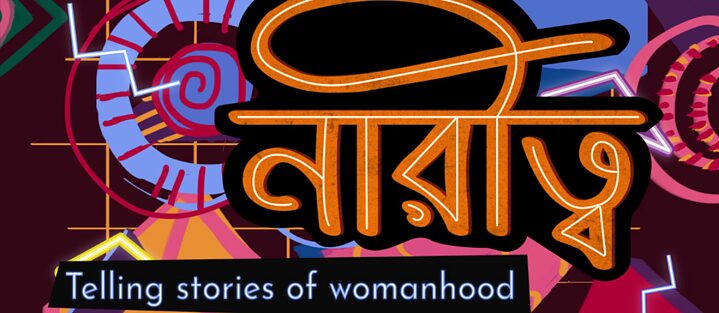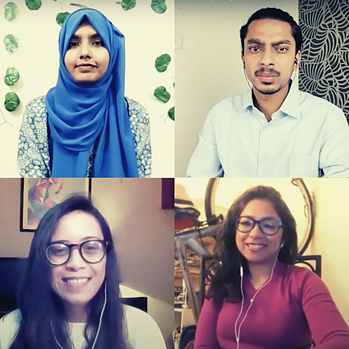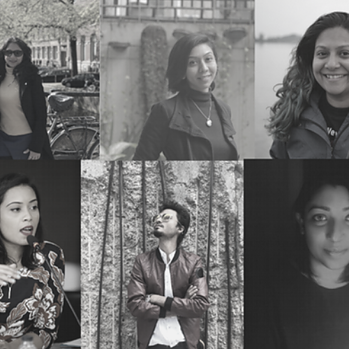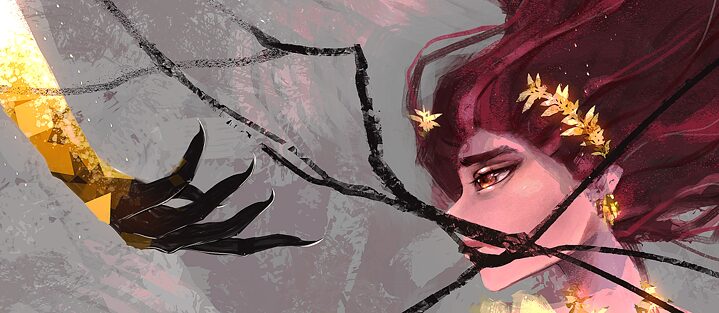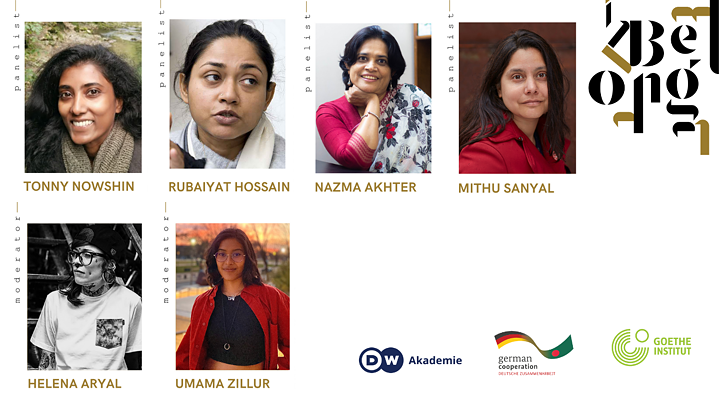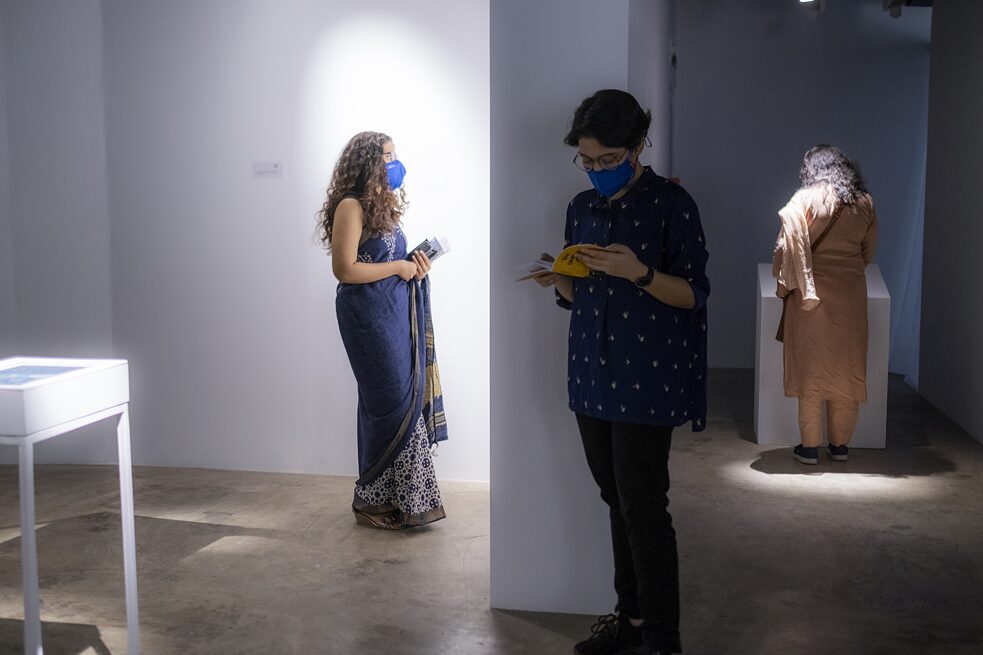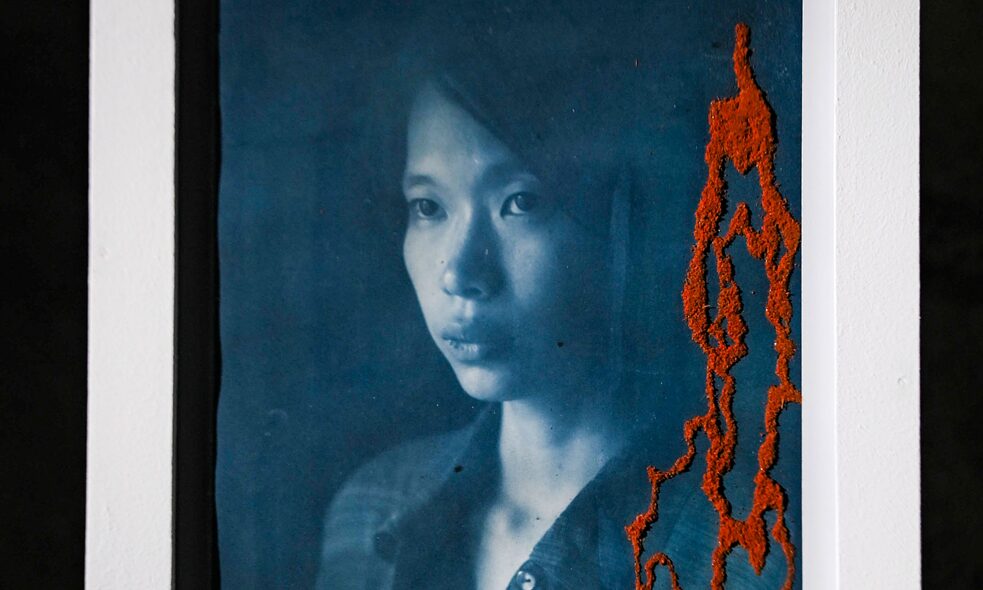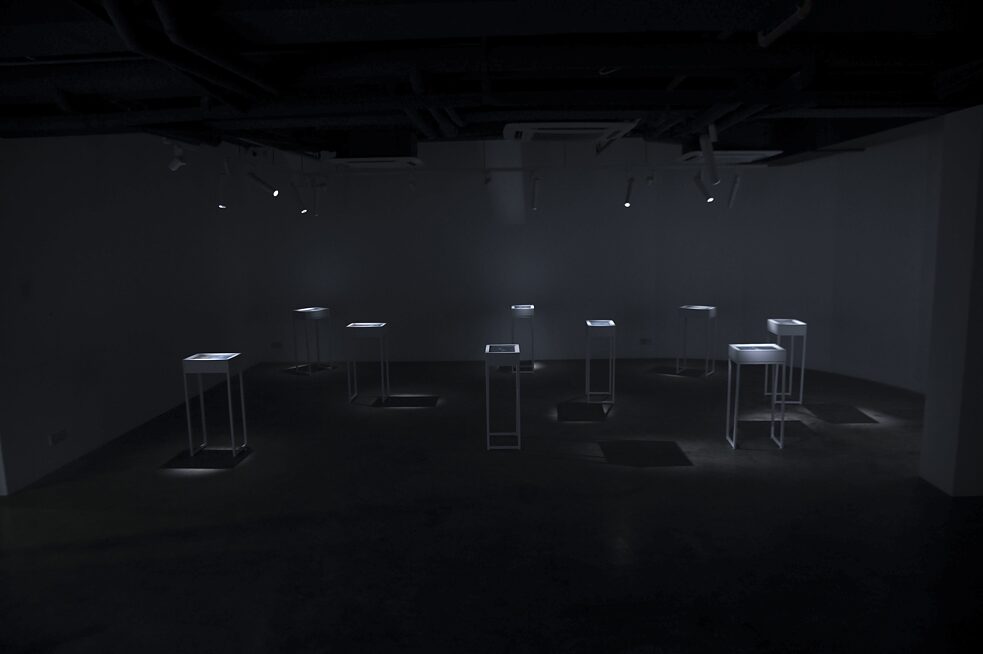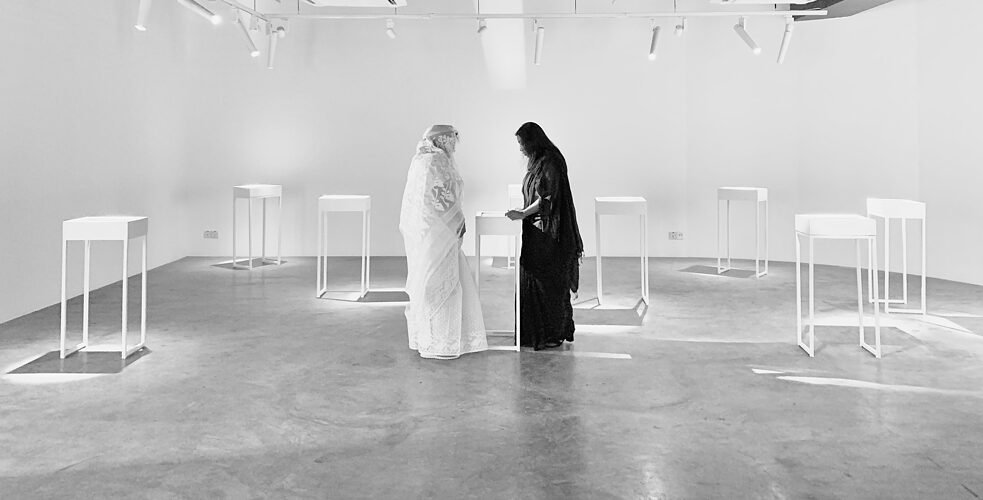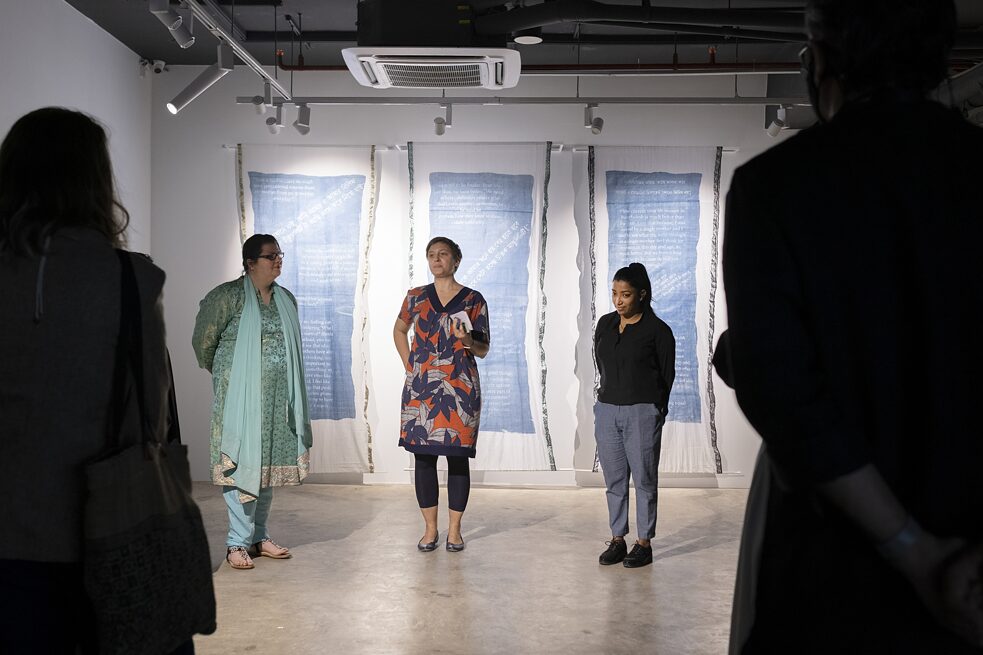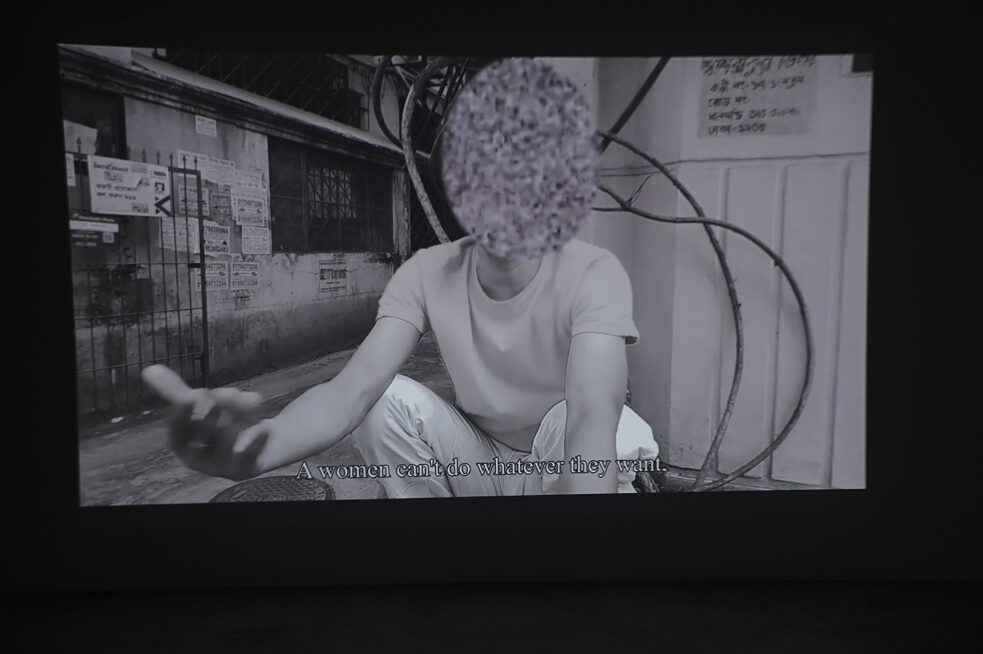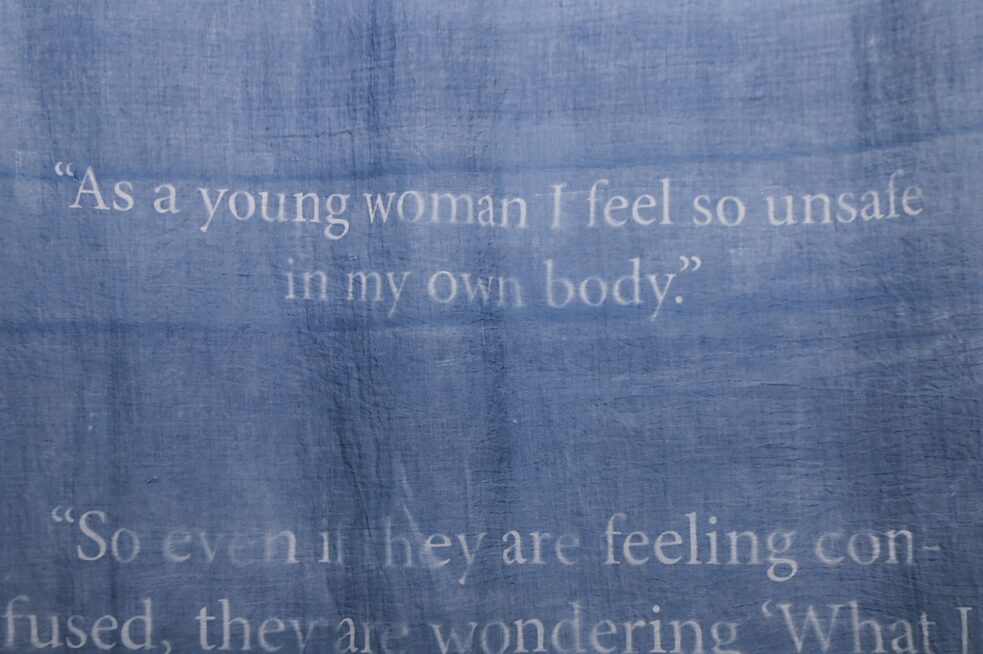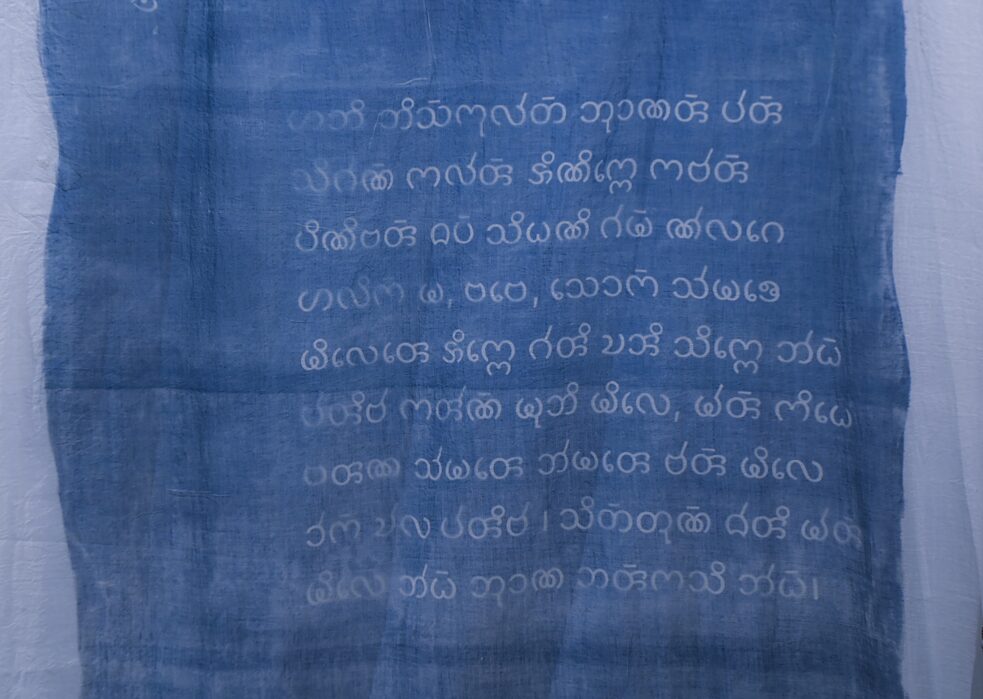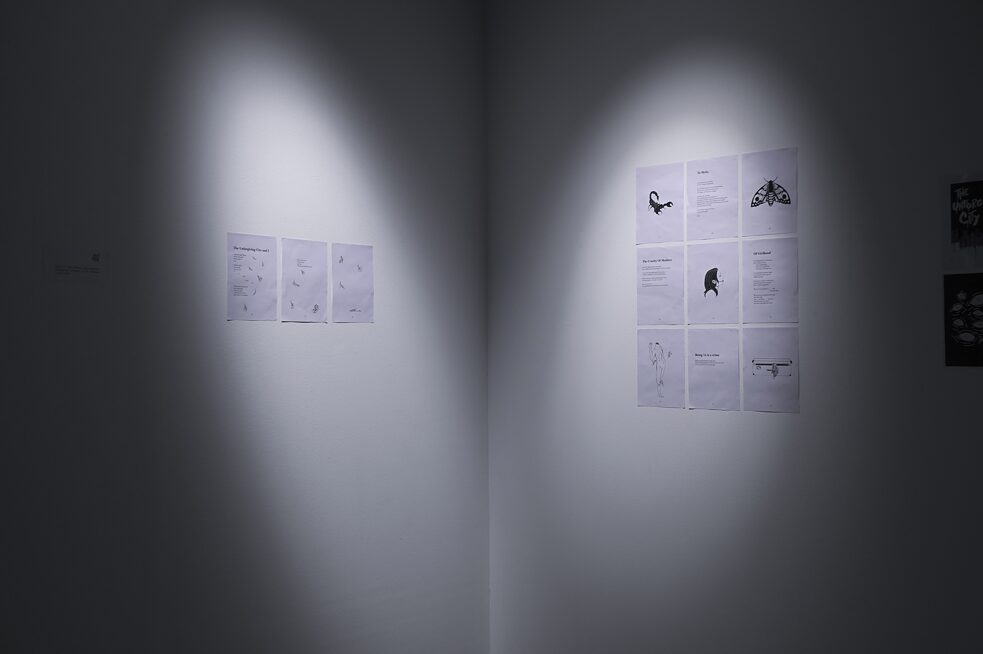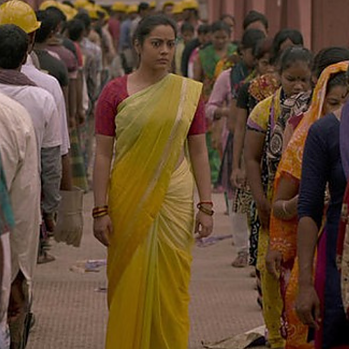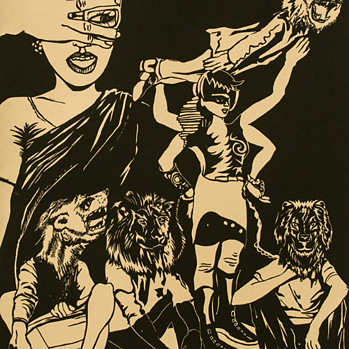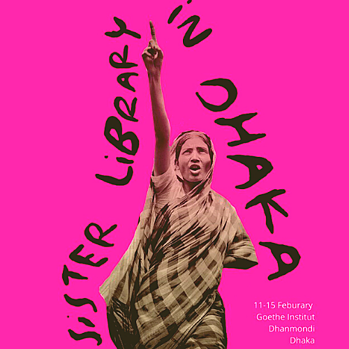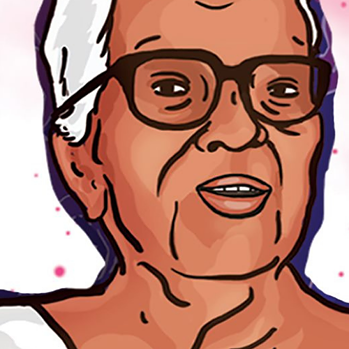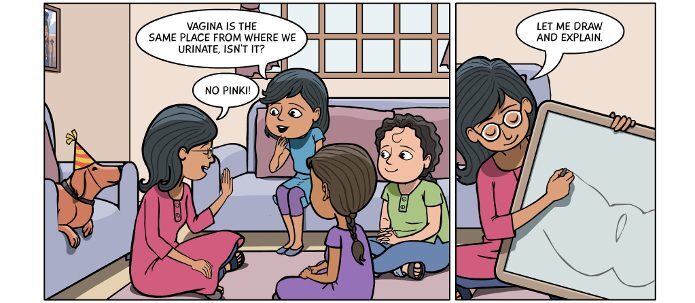Is the imagination pure? Cassandra�s end, in the Greek myth, is a night just beyond the grasp of justice; her eyes become her fatal calling, for her vision of the Fall of Troy frightens the men around her. Even �the gods,� Apollo.
Our Young Feminism Network leveraged their work and passion to create various on-site and online events across generations, genders, class, Bangladesh, Germany, UK, and India to discuss contemporary societal questions along with the International Women�s Day 2022.
A multimedia exhibition by artists of the Young Feminism Network provided a holistic insight of the generation�s zeitgeist. Curator and artist Ashfika Rahman attempted to represent conversations through the exploration of the feminism consciousness.
With Bengal Publications, we published young writer Aahir Mrittika�s debut collection of poems. Set in Dhaka, the poems avenge and memorialize the heartache of growing up in the city as a young girl. Aahir is a 20-year-old writer and activist from Mohammadpur, Dhaka.
